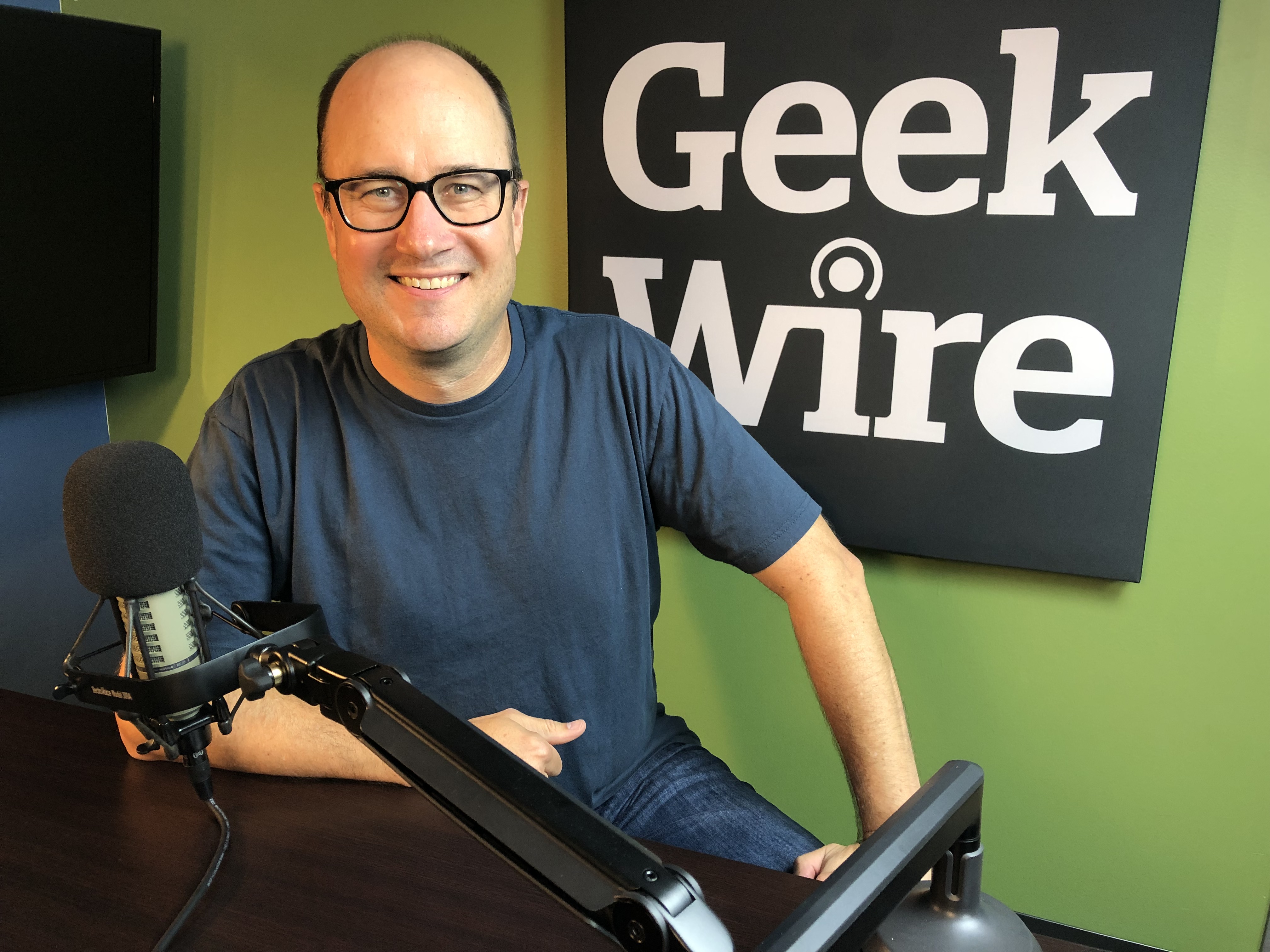5 Questions with Distinguished Alum Todd Bishop

Todd Bishop (Journalism, Business Administration, ’96) is a co-founder and editor at GeekWire, a Seattle-based news site covering national technology trends and key developments from companies like Amazon, Microsoft, Google, and Apple. After working as a staff writer at The Orion, Bishop spent time reporting for the Philadelphia Inquirer and the Seattle Post-Intelligencer. Since GeekWire was founded in 2011, the news site now employs 15 people across the business and news sides. Bishop is one of eight distinguished alumni to be honored by the University this fall, and he spoke with us to reflect on his success, his career, and his Chico Experience.
Which classes at Chico State made a difference for you?
The whole Orion experience was far and away the most formative experience for me during my time at Chico State. In particular, the way the journalism department runs, the way The Orion gives autonomy to the student editor and reporters to go out and do their best each week. And then to go in for the weekly critique and get feedback, and to go out and do it again. It was tough, it was exhilarating, and it confirmed for me that journalism was what I wanted to do as a career.
That experience of finding out things that other people around campus didn’t know and putting them together into a report that informed and got people talking, that to me was the “aha” moment. That really is what journalism is about, in many ways. It’s becoming an expert on a topic, and you become an expert on multiple topics in any given week. You learn things that people need to know, and you figure out how to inform them about it. To me, that embodied the experience at The Orion. You could really see, in some cases, some of those stories having an impact.
How do you see journalism’s role today in covering tech giants and bringing it back to the community?
At our best, we really end up asking a lot of tough questions of companies like Microsoft and Amazon, and even smaller companies, that are getting into areas where they’re pushing the envelope with things like privacy and security. Ultimately, in the broader sense, some of these stories are serving our global community, and that’s what we do at GeekWire. You’re asking and reporting things that, in many cases, people wouldn’t know already. In many ways, you’re the eyes, the ears, and the voice of the community. It’s a pretty daunting role at times, but it’s also extremely rewarding. For any community to thrive, it’s pretty critical to have the eyes, the ears, and the voice in the middle of it.
What has it been like to cover the transformation of technology?
It’s like that saying, “the days are slow and the years are fast,” when you talk about kids. I look at some of the technologies that we have today at our disposal. You’re starting to see the rise of artificial intelligence and automation. These are things that companies like Amazon and Microsoft and some of the research organizations here have been talking about for years and years. You look around and it sneaks up on you, and you suddenly say, “Wait a second, that voice translation that they were talking about for neural networks, I can see how that’s really made it better when I talk into my phone and it understands me now.” You can see the steady advance of tech, in ways that are both good and bad. I think one of the key things that we’ve covered here over the past few years is how the tech boom has had a real big social impact on Seattle. Probably one of the biggest ways that we’ve expanded our coverage is by looking at the intersection of technology and the Seattle region, and how it’s impacting not only mundane things like extra traffic, but also really meaningful things and big problems to solve, like homelessness.
What is your hope for the Chico State journalism program?
One of the lessons we learned at GeekWire is that hard work, traditional journalism, digging through records, finding sources, figuring out things that people not only didn’t know but didn’t even know to ask, good old-fashioned, shoe-leather journalism stands out so much these days. It’s remarkable what that’ll do in terms of attracting people to your coverage and ultimately building community. And there is so much to cover at Chico State—literally within the boundaries of the campus and some of the surrounding neighborhoods—that my hope would be that coverage would continue to focus on serving the core of the Chico State audience.
What advice would you give your graduating self?
The Internet is going to be big. In 1995, 1996, we had a pretty good sense that this was pretty meaningful, but just the disruptive force that it would become. I would have started buying domains. That was the time to get them. Professionally, I would have reassured myself that staying the course, doing good reporting, staying around until the end of the city council meeting until midnight because you think the story is going to be late on the agenda, that that is the right path. Frankly, the old rule that hard work will overcome anything still applies.


